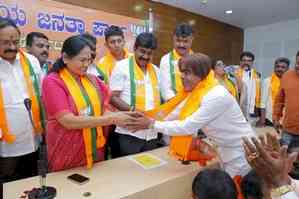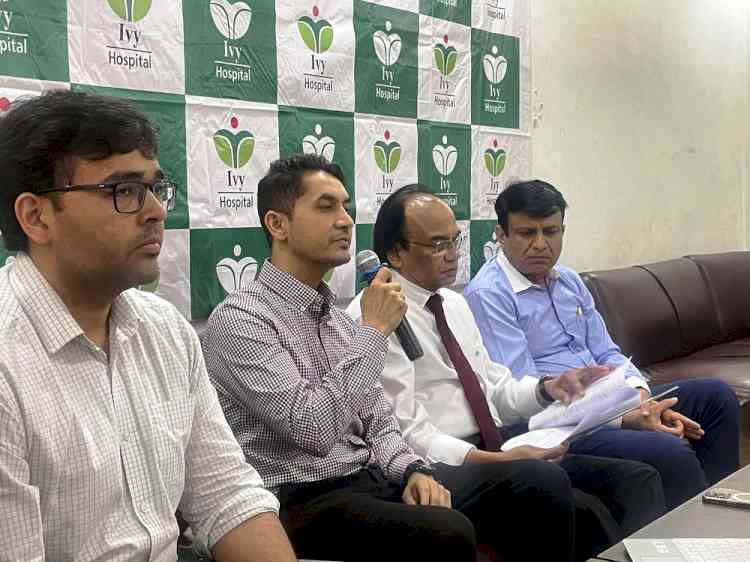Workshop on climate change mitigation strategies

The integration of dairy, forestry, fisheries, mushroom cultivation, horticulture with dominant cropping system and agro-tourism based on conservation principals is the need of the hour to convert climate variability /change into an opportunity. Shifting from crop, commodity and enterprise based agriculture to integrated multi-enterprise system and increasing farmers’ income per unit of land and water is imperative to enhance climate resilience and livelihood options. These were some of the major recommendations during the one-day capacity building programme organized under Climate Change Adaptation in Rural Areas of India at the Dr YS Parmar University of Horticulture and Forestry (UHF), Nauni (Himachal Pradesh).
Panchayats representatives from Solan, district officials, scientists and research scholars took part in the workshop organized by the HP Knowledge Cell on Climate Change, Department of Environment, Science and Technology in collaboration with GIZ and Department of Environmental Science of the university. The aim of the workshop was to understand and develop mitigation strategies for climate change in the region.
In his address, Dr Suresh Attri, State Coordinator, HP Knowledge Cell on Climate Change said that the Himalayan ecosystem was vital to the ecological security and possessed unique floral and faunal wealth. He was of the view that the rate of change in the environment puts a big question mark on the survival of all living beings and called for linking development activities with environmental conservation and sustainability.
Dr JN Sharma, Director Research of the University, shed light on the contribution of agricultural activities in environmental pollution. He advocated the implementation of climate-smart agriculture interventions that are adaptive to different agro-ecologies and farm types for reducing the pollution caused due to agriculture. Dr PK Mahajan, Dean College of Forestry urged the scientists and students to work in close coordination with the farmers and undertake environmentally friendly research as per the needs of the end user. While urging the farmers to send their children to study agriculture, he informed that the university has reserved 50 per cent in undergraduate courses for students who have passed any of the two classes-8th, 10th or 10+2 from government schools located in rural areas.
The scientists informed that over the past seven decades, humans have changed ecosystems more rapidly and extensively than in any comparable period in human history, which has resulted in a substantial and largely irreversible loss in the diversity of life. While the Himalayan region has seen a rise of 1.7 ?C in average temperature in the past 100 years, the snowfall has reduced by 15-20%.
“Through interactions between the scientists and the farmers, it was concluded that climate change and variability events like heat and cold waves, droughts and floods have become common. These have increased the vulnerability of agriculture and absence of alternative livelihood options in mountains is leading to migration of labour and educated youth,” said Dr SK Bhardwaj, Professor and Head, Department of Environmental Science. He added that there was a consensus on the urgent need to focus attention on sustainably increasing productivity, enhance resilience and reduce greenhouse gases and to have synergies between three pillars: productivity, adaptation and mitigation.
Dr Bhardwaj said that climate change has also opened new opportunities for high hill farmers as the ‘Growing Degree Days’ are increasing and have opened the doors for growing and introduction of new crops and cultivars. The mountain farming community is also steadily moving towards other crop options like cultivation of pomegranate, kiwi, tomato, peas, cauliflower, cabbage, broccoli etc. In subtropical low hill region, farmers have opted for protected cultivation of vegetables and flowers in a big way.
Two technical sessions by Dr SK Bhardwaj and Dr MK Brahmi were also held during the workshop followed by interaction on developing mitigation strategies for the region based on the participants’ experiences. Another important recommendation of the workshop was the urgent need to train researchers, extension personnel, farmers on climate change issues and create awareness among masses. Infrastructural development to make the hill agriculture resilient to climate change and training on making value-added products can augment the farm income to make farmer more resilient to adverse situations.
Crop diversification, natural farming, water harvesting and soil moisture conservation, introduction of efficient irrigation systems, eco-friendly disease-pest management strategies, weather forecast based agro advisory services, usage of crop biomass, improved agronomic practices for enhanced nutrient use efficiency were some of the other adaption techniques that found mention in the workshop.

 cityairnews
cityairnews 















